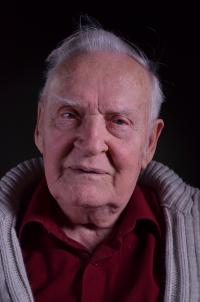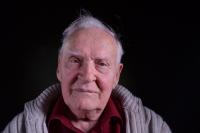One should not stand in the way of other peoples‘ lives
Radomír Choděra was born on 20 February 1925 in Ústí nad Labem. In October 1938, following the signature of the Munich Agreement, he and his family left his hometown and moved to Radomír‘s grandparents‘ in Český Brod. After half a year, the family settled down in Prague. As a grammar-school student, he took part in the Prague Uprising at the end of WW II where he helped building barricades. He graduated in Russian language and philosophy at the Faculty of Arts in Prague and became a university teacher. He is a prominent expert on didactics, in particular didactics of foreign languages.


